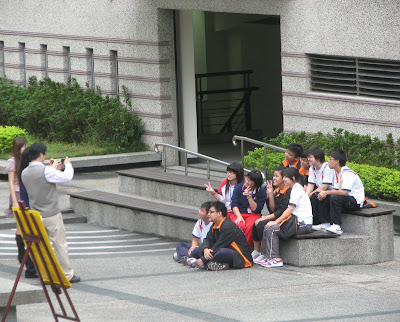
参访交流:达人女中














最精彩的参访:参观中天电视台与商业周刊





关渡—八里单车行启程前的大合照

吔!我们可是骑了近40公里哦!
相关链接:
(台湾)康桥双语实验高中:
第三屆德明政府中學與康橋交流活動 Day 1
第三屆德明政府中學與康橋交流活動 Day 2
(台湾)自由時報:
星高中生來台交流 愛自由學風
新加坡學子參訪 康橋人陪騎
(台湾)聯合報:
星中學生訪台 公費體驗雙文化
德明訪台HOME STAY體驗文化

相关链接:
(台湾)康桥双语实验高中:
第三屆德明政府中學與康橋交流活動 Day 1
第三屆德明政府中學與康橋交流活動 Day 2
(台湾)自由時報:
星高中生來台交流 愛自由學風
新加坡學子參訪 康橋人陪騎
(台湾)聯合報:
星中學生訪台 公費體驗雙文化
德明訪台HOME STAY體驗文化
(台湾)普台高级中学:
(台湾)国立政治大学:


















